What is Off-Page SEO and Why is it Important?
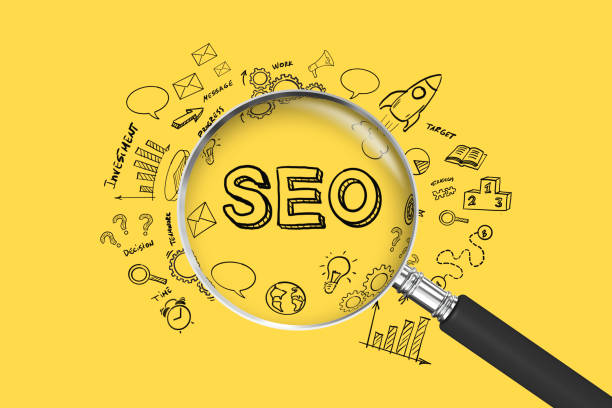
To gain a deeper understanding of website optimization in search engines, we must delve into a crucial aspect called #Off_Page_SEO (Off-page SEO).
This section encompasses all activities performed outside your website to improve its ranking in search results.
Essentially, off-page SEO means building authority and gaining the trust of search engines through activities beyond your direct control on your website.
These activities primarily include #backlink_building, #social_media_activity, and #brand_mentions.
The importance of off-page SEO lies in the fact that search engines like Google evaluate a website’s quality and credibility not only based on its internal content but also on the opinions of other websites and users.
A website with high-quality and relevant backlinks is considered more authoritative and trustworthy by Google.
This authority directly impacts #site_rank and inbound traffic.
Many SEO specialists believe that off-page SEO, especially link building, is one of the strongest signals for search engines.
A strong off-page SEO strategy can help you outperform other websites, even if there are minor differences in on-page SEO.
So, if you are looking for sustainable success in search results, off-page SEO should never be ignored.
This part of SEO complements on-page SEO, and together they can yield amazing results.
Are you dissatisfied with the low conversion rate of visitors to customers on your e-commerce site?
Solve this problem forever with professional e-commerce website design by RasaWeb!
✅ Increase visitor-to-customer conversion rate
✅ Create an excellent user experience and build customer trust
⚡ Get Free Consultation
Core Pillars of Off-Page SEO: Link Building
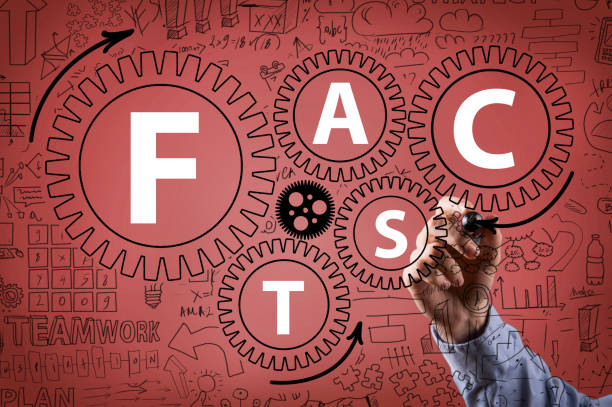
Link building is at the heart of #Off_Page_SEO and forms the backbone of off-page strategies.
#Backlinks, or inbound links, are links from other websites that point to your website.
Search engines treat these links as “votes of confidence” or “references” from other websites.
The greater the number and quality of these votes, the more your website’s authority in the eyes of search engines increases.
However, the key point here is the quality of the links, not just their quantity.
A single link from an authoritative and relevant website is worth far more than dozens of links from low-quality or spammy websites.
Link-building strategies should focus on generating natural and organic backlinks.
This means avoiding any illicit or black hat activities that could lead to penalties from Google.
Backlinks can be divided into two main categories: #Dofollow_links and #Nofollow_links.
Dofollow links directly transfer authority from the source website to the destination, while Nofollow links do not transfer this authority but can still bring traffic and brand awareness.
Choosing the appropriate #Anchor_Text is also crucial in link building; anchor text is the word on which the link is placed and should be relevant to the destination page.
Ultimately, focusing on creating valuable content that naturally encourages others to link to it is the best strategy for sustainable off-page SEO.
Types of Backlinks and Their Strategies
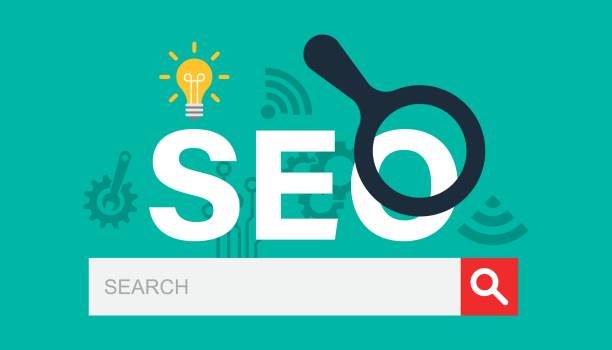
Understanding the types of backlinks and their corresponding strategies is crucial for a successful #Off_Page_SEO campaign.
This variety allows you to create a natural and robust link profile for your website.
One of the most popular and effective methods is #Guest_Posting, which involves writing high-quality articles for other websites relevant to your business and including a link to your site within that article.
This method not only aids in link building but also enhances your credibility as an industry expert.
Another method is #Link_Building_from_Authoritative_Sources; this means finding pages that list useful resources and requesting your link to be added to that list.
#Building_backlinks through Broken Link Building is also a clever strategy where you identify broken links on other websites and suggest your relevant content as a replacement.
Backlinks can also be obtained through relevant online directories, blog comments (with caution to avoid spam), and specialized forums.
However, the most important point in all these methods is ensuring the quality and relevance of the source page’s content to the destination page.
To better understand these concepts, the table below compares common backlink types by their quality and required effort:
| Backlink Type | Description | Quality (1 to 5) | Effort Level (1 to 5) |
|---|---|---|---|
| Guest Posting | Writing articles for other websites and getting a link | 5 | 4 |
| Links from Authoritative Sources | Being listed in useful resource lists on other websites | 4 | 3 |
| Broken Link Building | Identifying broken links and replacing them with your content | 4 | 3 |
| Specialized Directories | Registering the site in reputable and relevant directories | 3 | 2 |
| Blog and Forum Comments | Posting useful and relevant comments containing links | 2 | 1 |
Criteria for a Quality Backlink in Off-Page SEO

Simply having backlinks is not enough; what matters is the #quality_of_backlinks and their impact on your website’s #Off_Page_SEO.
There are several criteria for assessing the quality of a backlink, and understanding them is essential for any SEO specialist.
The first criterion is the #Domain_Authority and #Page_Authority of the website from which you receive the link.
A link from a highly authoritative website, which itself has many quality backlinks, holds significantly more value.
The second criterion is Relevance.
A link coming from a website related to your industry or field of work is far more effective than a link received from an unrelated general news website.
For instance, if you have a sports equipment sales website, a link from a reputable sports blog is much more beneficial than a link from a general news website.
The third criterion is appropriate and natural #Anchor_Text.
The anchor text should be relevant to the destination page and should not appear spammy or over-optimized with keywords.
The position of the link on the page also matters; a link placed within the main body of the content is more valuable than one located in the footer or sidebar.
Finally, the freshness of the link and how it was acquired are also important.
Links obtained naturally and because of the value of your content are the most stable and effective type of backlink for off-page SEO.
Always prioritize quality over quantity to achieve the best results in off-page SEO.
Tired of your e-commerce website not generating as much revenue as it could? RasaWeb, specialized in professional e-commerce website design, solves this problem forever!
✅ Increase sales and revenue rates
✅ High loading speed and unparalleled user experience
⚡ Get free consultation for e-commerce website design
Off-Page SEO Analysis Tools and Backlink Monitoring

For success in #Off_Page_SEO, merely having link-building strategies is not enough; you need tools that allow you to monitor, analyze, and manage your backlinks and those of your competitors.
#SEO_tools provide you with a comprehensive view of your link profile and help identify opportunities and threats.
Among the most important of these tools are Ahrefs, SEMrush, and Moz.
These platforms offer extensive capabilities for #backlink_analysis.
Using Ahrefs, you can view your website’s inbound backlinks, check the authority of linking domains, and even analyze your competitors’ backlink profiles to discover their strategies.
SEMrush also provides powerful tools for backlink analysis, identifying toxic links, and finding link-building opportunities.
Moz, with its Domain Authority (DA) and Page Authority (PA) metrics, has set a standard for evaluating website authority, which is very useful in #assessing_link_quality.
These tools help you identify and manage (Disavow) low-quality or spammy links that might be pointing to your website.
Additionally, by monitoring your competitors, you can find websites that have linked to them, thereby discovering new link-building opportunities for yourself.
Regular use of these tools is an integral part of an effective, data-driven off-page SEO strategy, allowing you to stay abreast of changes in your link profile and take necessary actions to maintain and improve it.
The Indirect Role of Social Media in Off-Page SEO
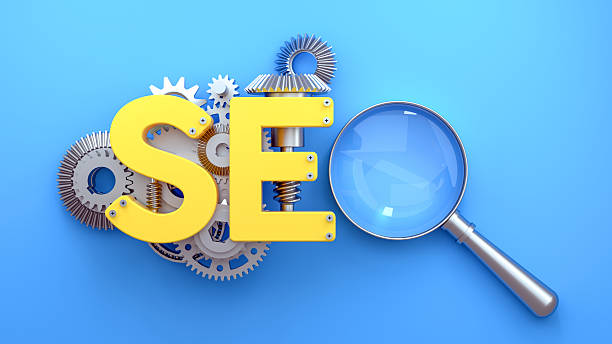
While many SEO specialists emphasize that #social_signals from platforms like Facebook, Twitter, and LinkedIn do not directly influence website ranking in Google, their indirect role in #Off_Page_SEO cannot be overlooked.
Social networks are powerful platforms for increasing your content and brand visibility, which in turn can contribute to improving off-page SEO.
When your content is shared on social media, more people see it.
This increased visibility can lead to a rise in direct traffic to your website.
More importantly, widespread sharing and discussions around your content on social media can draw the attention of other webmasters and bloggers to your valuable content, encouraging them to link to it.
These #natural and organic #links are the foundation of strong and sustainable off-page SEO.
Furthermore, continuous activity on social media contributes to #online_branding and building credibility for your brand.
A strong and well-known brand is more likely to receive unlinked mentions, which Google also considers as positive signals for brand authority.
So, although “like” or “share” buttons alone won’t boost your ranking, their role in #content_distribution, #brand_awareness, and ultimately encouraging natural link building, makes them an inseparable part of a comprehensive off-page SEO strategy.
Focusing on creating engaging and shareable content is the first step to maximizing the potential of social media for SEO improvement.
Local SEO and Off-Page SEO in Local Businesses
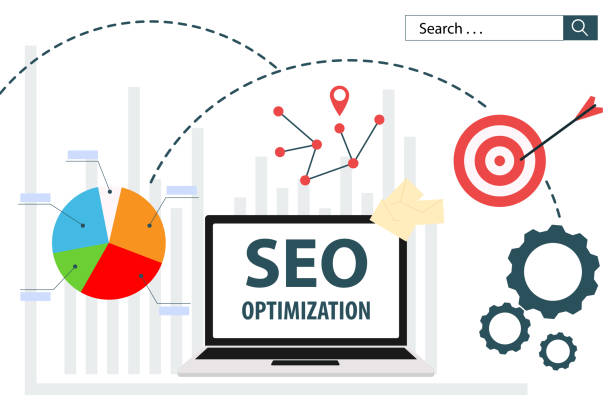
For businesses whose customers are concentrated in a specific geographical area, #Local_SEO is of vital importance.
Interestingly, many elements of local SEO directly or indirectly influence the #Off_Page_SEO of these businesses.
One of the most crucial factors in local SEO is a strong presence on Google My Business (GMB).
Complete and up-to-date information in GMB, including Name, Address, and Phone number (NAP), not only helps Google better understand your business but also forms the foundation for #Local_Citations.
Local citations include mentions of your business’s name, address, and phone number on other websites, directories, and online platforms, even if these mentions do not include a direct link to your website.
These citations send strong signals to Google that your business is real, active, and legitimate, which contributes to increasing domain authority and consequently improving off-page SEO.
Furthermore, #Online_Reviews on platforms like GMB, Yelp, or TripAdvisor play a significant role in both local and off-page SEO.
Positive and active reviews not only boost customer trust but also send positive signals to search engines, indicating that your business is popular and reliable.
Although these reviews are not direct links, they can indirectly impact your website’s authority and traffic, increasing your chances of receiving natural backlinks from satisfied customers or other websites.
Consequently, for a local business, investing in local SEO is a crucial part of their off-page SEO strategy.
| Local SEO Factor | Description | Impact on Off-Page SEO |
|---|---|---|
| Google My Business (GMB) | Business profile on Google for display in local results and maps | Increases brand and business credibility, basis for local citations |
| Local Citations | Mentioning name, address, phone in directories and other websites | Increases domain authority, recognized as a real and active business |
| Online Reviews | Customer reviews on GMB, Yelp, TripAdvisor, etc. | Increases user and search engine trust, encourages natural link building |
| Local Content | Creating content relevant to a specific geographical area | Attracts targeted traffic, possibility of getting backlinks from other local businesses |
Off-Page SEO Penalties and How to Avoid Them

In the world of #Off_Page_SEO, just as there are opportunities for growth and ranking improvement, there are also lurking dangers that can lead to penalties from Google.
#Google_Penalties usually occur as a result of using #Black_Hat_SEO techniques and attempts to manipulate search results through unnatural link building.
The most significant factor that can cause a penalty is buying links or participating in Link Farms.
These activities are strictly prohibited by Google as it considers them an attempt to deceive its ranking algorithms.
Other problematic backlink types include spammy links from low-quality and irrelevant websites, Hidden Links, or excessive use of a specific and unnatural anchor text (Keyword Stuffing in Anchor Text).
If Google determines that your link profile is unnatural, it can severely reduce your website’s ranking through manual or algorithmic penalties.
To prevent these penalties, always focus on #natural and organic link building.
Instead of buying links, concentrate on creating high-quality content that naturally encourages others to link to it.
Use backlink analysis tools for continuous monitoring of your link profile and identify suspicious or spammy links.
If you notice malicious backlinks pointing to your website, you can use the Google Disavow Tool to inform Google that you do not wish those links to be considered.
Prevention is always better than cure, and in the realm of off-page SEO, this principle becomes even more crucial.
Are you dissatisfied with the low conversion rate of visitors to customers on your e-commerce site?
Solve this problem forever with professional e-commerce website design by RasaWeb!
✅ Increase visitor-to-customer conversion rate
✅ Create an excellent user experience and build customer trust
⚡ Get Free Consultation
The Future of Off-Page SEO and Algorithm Changes
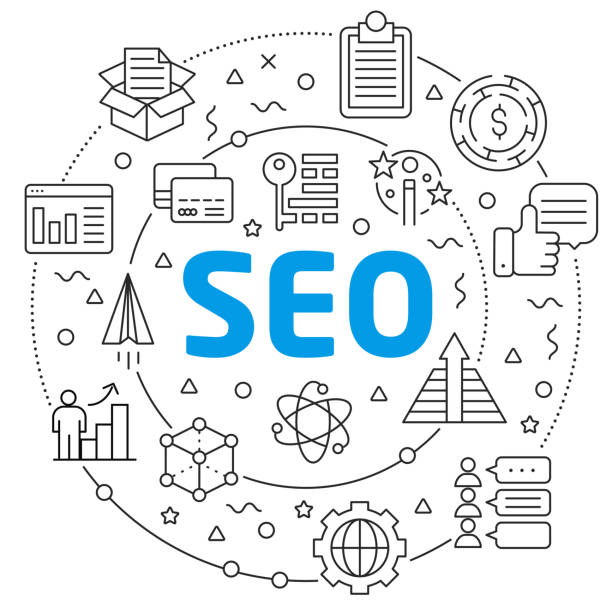
The world of #SEO is rapidly changing, and #Off_Page_SEO is no exception.
With every update to #Google_Algorithms, approaches and priorities may shift.
In recent years, Google has increasingly emphasized the quality and relevance of links.
The focus has shifted from the quantity of links to the authority, topical relevance, and naturalness of links.
The future of off-page SEO will likely emphasize even more the creation of valuable content and building online communities.
Concepts like #E_E_A_T (Experience, Expertise, Authoritativeness, Trustworthiness – تجربه، تخصص، اعتبار، اعتماد), introduced by Google, have gained more importance.
This means Google is looking for sources that not only provide quality content but are also written by expert and authoritative individuals and reflect real experience.
Off-page SEO in the future will move more towards “branding” and “digital public relations”, where the main goal is to increase your brand’s visibility and authority on the web to naturally acquire quality links and mentions.
Furthermore, with advancements in artificial intelligence, algorithms will be able to better understand the meaning of content and relationships between websites.
This means that backlinks embedded within deep and relevant content will hold greater value.
To succeed in the future of off-page SEO, it is essential to stay updated with the latest Google developments, build your strategies on ethical principles and genuine value creation, and refrain from attempting to manipulate algorithms.
In other words, off-page SEO is not a short-term tactic but a long-term strategy.
Comprehensive Off-Page SEO Strategy for Long-Term Success
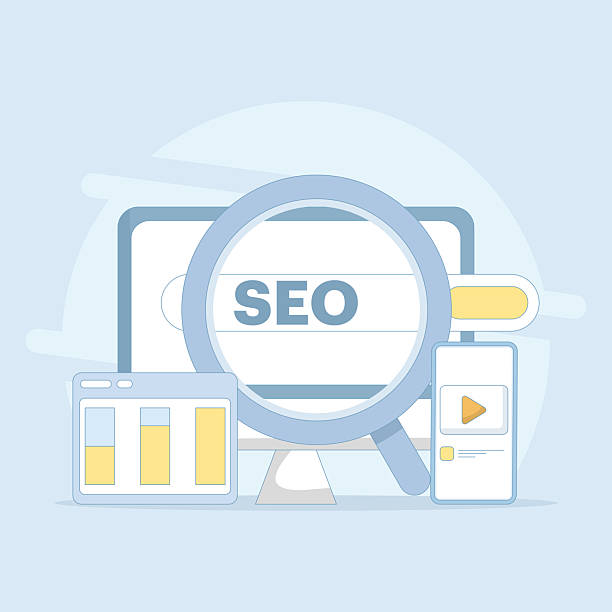
To achieve #long_term_success in search results, a #comprehensive_Off_Page_SEO_strategy is essential, one that goes beyond merely building a few backlinks.
This strategy should encompass various synergistic approaches that work together to increase your website’s authority and visibility.
The first step is #keyword_research and #competitor_analysis.
This helps you understand how your competitors acquire backlinks and what opportunities exist for you.
Then, focus on #creating_high_quality_and_valuable_content.
Content that is genuinely useful, informative, or entertaining for your audience will naturally attract links and shares.
This approach is the core of healthy and sustainable #Off_Page_SEO.
Being active on social media and engaging with your audience also helps strengthen your brand and increases the likelihood of your content being seen.
Next, engage in active link building through guest posting, finding broken links, and participating in specialized forums and blogs while adhering to ethical principles.
These actions should be carried out with precision and a focus on quality.
Also, remember that continuous monitoring and analysis of your backlink profile using SEO tools, for identifying opportunities and combating malicious links, are crucial.
Ultimately, patience and perseverance are two key factors in off-page SEO.
Results are not achieved overnight and require continuous time and effort.
By implementing a comprehensive and ethical strategy, you can ensure that your website’s off-page SEO is on the right track and that you will achieve sustainable long-term success.
Frequently Asked Questions
| Question | Answer |
|---|---|
| What is Off-Page SEO? | Off-page SEO refers to a set of activities and methods performed outside your website to improve its ranking in search engines, such as building backlinks. |
| Why is Off-Page SEO important for a website? | Off-page SEO shows search engines that your website is authoritative, popular, and trustworthy, which helps increase domain authority and ranking. |
| What is the most important factor in Off-Page SEO? | Backlinks, or links from other sites pointing to your site, are the most important factor, especially if they come from reputable sites. |
| What are the characteristics of a quality backlink? | A quality backlink comes from authoritative sites (with high authority), is relevant to your site’s topic, and has appropriate (natural) anchor text. |
| Do social media networks play a role in Off-Page SEO? | Yes, sharing content on social media can help increase indirect visibility and traffic, and send positive social signals to search engines. |
| What is a PBN and is it recommended? | A PBN (Private Blog Network) is a network of private websites used to build backlinks to the main site. Google considers this method spam, and its use is strongly discouraged and can lead to penalties. |
| How is Natural Link Building done? | By creating valuable and shareable content, connecting with bloggers and influencers, and attracting media attention. |
| What is Anchor Text in a backlink? | It is the text where the link is embedded. Using diverse anchor texts relevant to the keyword appears more natural and helps SEO. |
| What is the connection between Local SEO and Off-Page SEO? | Local SEO includes off-site activities such as registration in Google My Business, local directories, and receiving online reviews, which help businesses appear in local search results. |
| How can competitor backlinks be analyzed? | By using tools like Ahrefs, Semrush, or Moz, you can analyze competitors’ backlink profiles and identify new link-building opportunities. |
And other services of RasaWeb Advertising Agency in the field of advertising:
Smart SEO: A combination of creativity and technology for user engagement through customized user experience.
Smart Link Building: An effective tool for digital branding with precise audience targeting.
Smart Brand Identity: A new service to increase website visits through custom programming.
Smart Marketplace: A fast and efficient solution to increase website visits by focusing on intelligent data analysis.
Smart Advertising Campaign: A creative platform for improving online growth using real data.
And over a hundred other services in the field of internet advertising, advertising consultation, and organizational solutions.
Internet Advertising | Advertising Strategy | Advertorials
Sources
- Complete Guide to Off-Page SEO
- What is Off-Page SEO?
- Off-Page SEO Techniques for Ranking Boost
- Website Off-Page SEO Optimization
? Do you want to transform your business in the digital world? RasaWeb Afarin Digital Marketing Agency, with its expertise in WordPress website design, SEO, and content marketing, is your comprehensive solution for online growth and prominence.
📍 Tehran, Mirdamad Street, next to Bank Markazi, Kazeroun Jonoubi Alley, Ramin Alley No. 6



